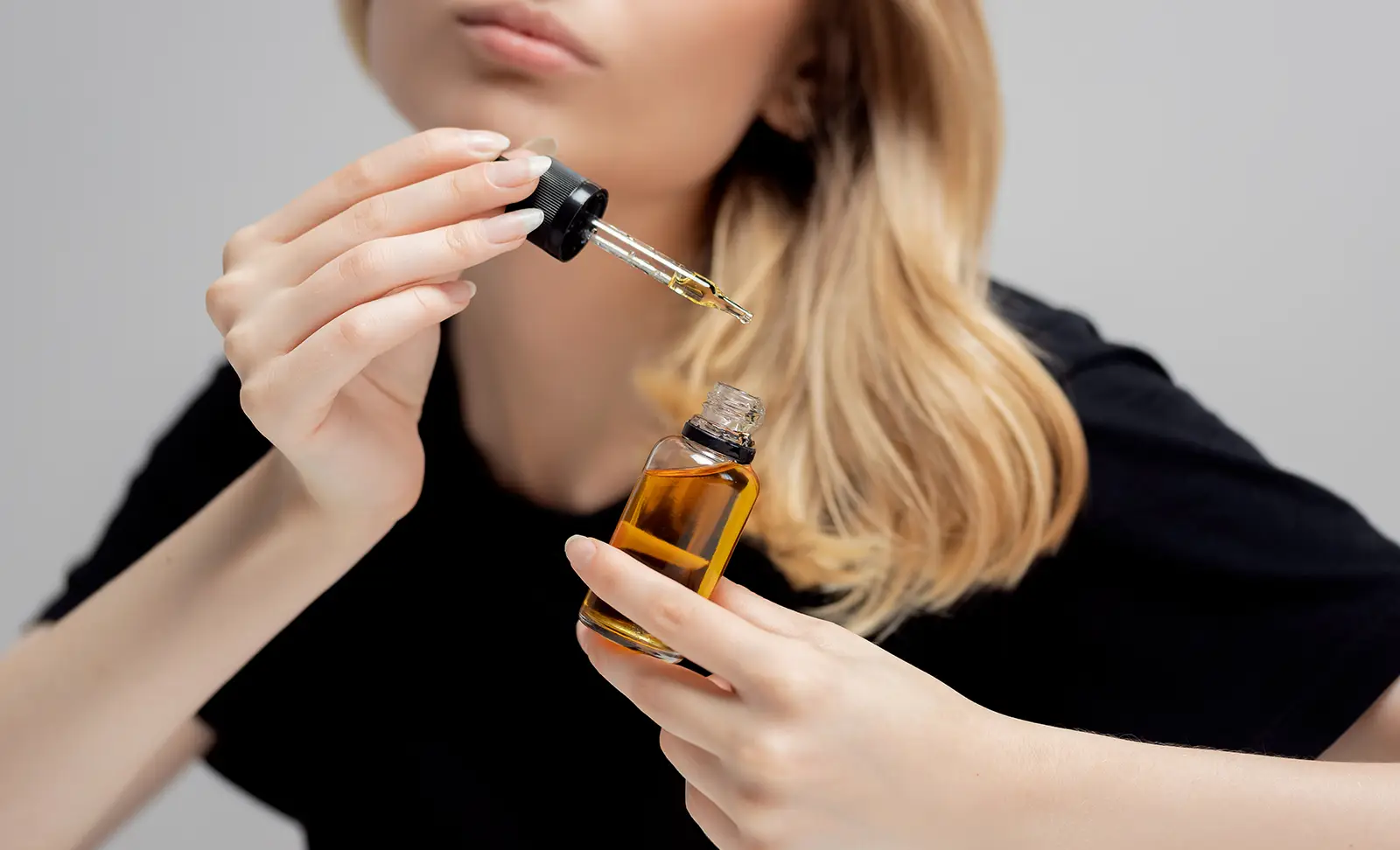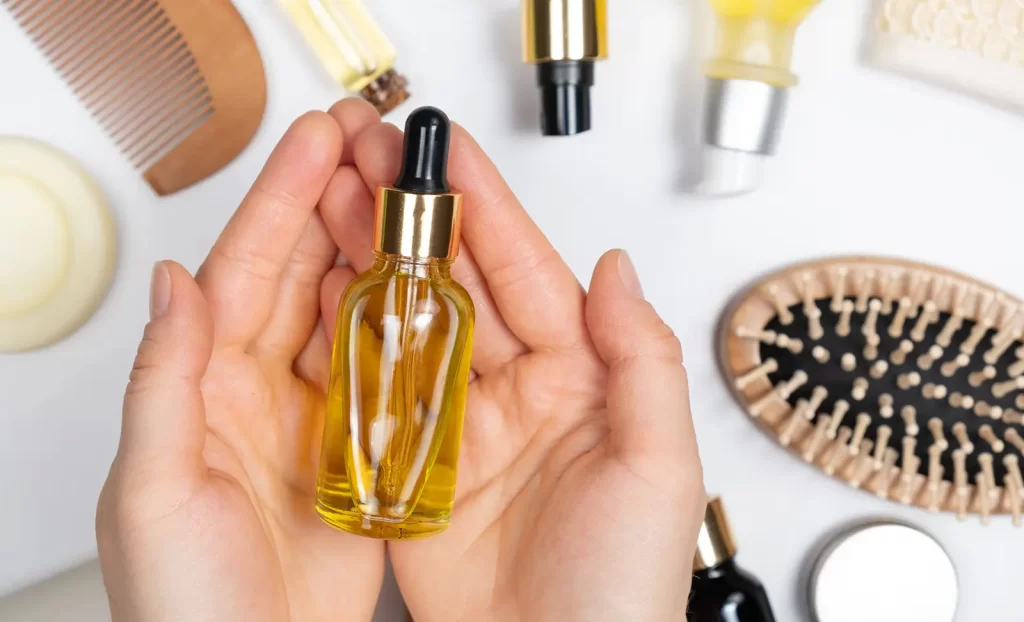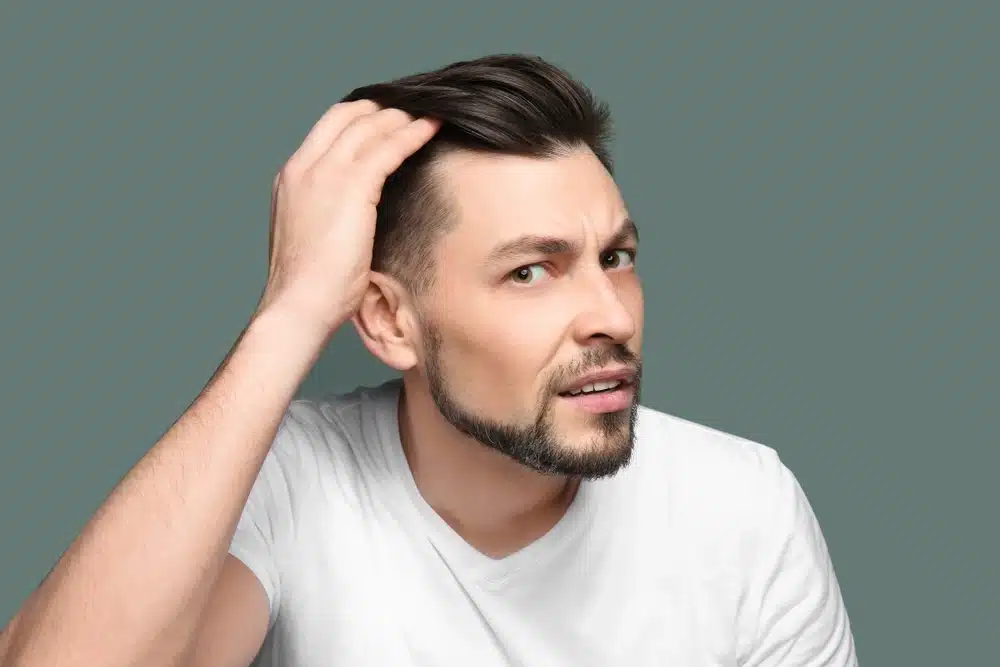It’s common for individuals struggling with hair loss to turn to natural remedies like mustard oil. This relatively cheap and accessible oil is typically used for external purposes in the UK, with some people finding that using it on the scalp can stimulate new growth.
- What is Mustard Oil? Mustard oil comes from Brassica Campestris seeds. The oil itself is very pungent, contains fatty acids, and has a range of antioxidant properties. While it’s commonly used in cooking around the world, it is generally marked for external use only in the UK due to the presence of erucic acid.
- What is in Mustard Oil? Mustard oil contains around 42% erucic acid, 12% oleic acid, 6% omega-3 alpha-linolenic acid, and 15% omega-6 linoleic acid.
- Can Mustard Oil Help with Hair Growth? While there are currently no studies showing that mustard oil can definitely help the hair grow, there is some evidence suggesting it can improve scalp and hair health, potentially leading to healthier hair growth.
- Are There Risks Associated with Using Mustard Oil on the Scalp? Using mustard oil externally is considered safe. However, the oil itself is quite pungent, and using too much may cause some irritation in the area it is applied.
Natural home remedies are popular for hair growth for so many reasons. One, they’re easy to do. They’re also cheap compared to many other options, and, most importantly, they seem to work. There are countless beauty experts, blogs, and guides on how to use hair oils to promote hair growth.
Not every oil, however, is going to work for you. That doesn’t mean you shouldn’t try. Mustard oil, for example, has been shown to provide many big benefits to your health. So long as you aren’t allergic, you absolutely should try mustard oil for hair growth today.
Introducing Mustard Oil, Your Next Big Hair Growth Treatment
Mustard oil is the oil extracted from, you guessed it, mustard seeds. It’s a staple in Indian, Chinese, and Nepalese cooking, but it’s grown beyond those borders. You’ll find mustard in every pantry in households around the world.
Like all ancient foods, mustard has a variety of health benefits linked to it, with one of the most prominent benefits of eating it being the reducing cardiovascular disease.
There are side effects. Some studies have linked the erucic acid that’s in mustard oil to certain health risks. This is because high levels of it are hard for the body to metabolise, and, as a result, may harm the brain cells. This is why mustard oil (not mustard itself, but specifically the oil) is banned for food consumption in the US and Europe. [1]
Now, critically, mustard oil is not banned from being used topically, meaning as a skin or hair treatment. It is still perfectly safe to use in your hair.
Is Mustard Oil Good for Hair?
The benefits of mustard oil aren’t fully understood. Anecdotally, mustard oil can help make your hair shinier, protect it from UV damage, and more. The benefits you experience, of course, will depend on your hair type and hair health.
What’s in Mustard Oil
Mustard oil contains:
- Oleic acid
- Erucic acid
- Omega-3 alpha-linolenic acid
- Omega-6 linoleic acid
- Saturated fatty acids
- Vitamin A
- Vitamin B Complex
- Vitamin E
- Calcium
- Selenium
- Magnesium
Can It May Make Your Hair Grow?
Mustard oil can nourish the scalp and hair, prevent dryness that can lead to hair loss, and, as a result, can help your hair grow more fully. This, of course, can only happen if your hair is actively deprived of the nutrients that mustard oil can provide. That’s why there’s no direct, scientific evidence that mustard oil can help your hair grow directly. It can help nourish it, which in turn can help your hair growth, but it’s not a specific cure.
Just because there’s no direct link, there is also no harm. So long as you’re not allergic, you can use essential oils in hair care so long as you find there’s a benefit.
After all, mustard oil can help with:
· Hair Hydration
Mustard oil contains a fatty acid that is naturally conditioning and hydrating, working to give you softer, more luxurious hair.
· Inflammation Reduction
Mustard oil is full of antioxidants like Vitamin A and E, and amino acids, which help reduce inflammation that can be inhibiting hair growth.
· Hair Protection
Mustard oil’s Vitamin E may also help with protecting your hair from UV damage, which can cause brittleness and drying, eventually leading to hair breakage.
· Hydrating
Since mustard oil can be hydrating, you can use it to help preventative damage. Environmental pollutants can enter the hair at any time, unless the hair is already “full”. This means hydrated hair, like skin, is better able to protect against pollutants and environmental damage, keeping it healthier in the long-run.
What are the Side Effects of Mustard Oil for Hair?
Using mustard oil externally is very safe, but you will want to avoid overusing it, as your skin can become irritated. Stick to short periods for your hair masks, and then wash it out for the best results.
The mustard oil itself can, of course, also be very fragrant – and not in a good way. If you have trouble with the smell, you can counteract it with other essential oils during your hair treatments. You may also want to use a clarifying shampoo to remove traces of the mustard oil from your hair when you finally go to wash it out.
It’s benefits may also be limited if your hair is greasy. This is because grease has already saturated the pores of your hair. Putting mustard oil on top of that greasy hair is unlikely to give you extra benefits, and only make your hair feel more oily.
How to Use Mustard Oil
Applying mustard oil is so easy. All you need to do is massage the oil directly on your scalp and leave it on for up to an hour.
You can alternatively make a hair mask by mixing the mustard oil in with a leave-in conditioner, and then rinse it out.
You can also mix it with another oil on your hair for up to 30 minutes and then wash your hair as you would normally.
Can I Mix Mustard Oil with Other Oils?
Yes, mustard oil works well with other essential oils. The combination can help you tackle issues like dry hair or slow hair growth all at once by combining oils like coconut with mustard. Other options, like jojoba or almond, mixed with mustard for hair growth, can help you finally get the luxurious, shiny locks you’ve always wanted.
How To Tell If Mustard Oil for Hair is Working
A great way to understand if mustard oil is a good treatment for your hair is to track your progress. You can easily do this with a hair track app, which is free to use. With it, you take photos of your hair, allowing you to easily review images and create a visual timeline.
If the mustard hair treatment is working for you, you should start to notice fuller, thicker and longer hair. If it isn’t, then your hair will either be the same, or, if your hair loss is due to another reason like male pattern baldness, it may even be getting worse.
Are There Other Natural Remedies for Hair Growth?
Yes, there are so many natural remedies that you can use to help promote hair growth [2], including:
- Aloe Vera: This works to soothe the scalp, which can help promote hair growth if your scalp was previously dry and itchy.
- Rosemary Oil: You’ll need to put the rosemary oil in a carrier oil, but the combination has long been used to help promote hair growth and get fuller, thicker hair.
- Green Tea: Green tea is a natural antioxidant, which can help soothe irritation. It’s also been known to boost hair growth.
- Coconut Oil: Coconut oil is very hydrating for the scalp and hair, which can promote hair growth.
The good news is that these natural remedies can be done at any time. There’s no reason why you can’t use a hair care treatment plan alongside your medical hair loss treatment. In fact, happily use both, since the natural remedies can help improve hair growth, and the hair medication can stop it from falling out.
Why Isn’t the Mustard Treatment Working?
Mustard oil for hair growth is not a cure-all. It’s just another way to help boost existing hair production. This means if you’re dealing with hair loss for any reason, from stress to hormones to your genetics, mustard treatments aren’t going to work for you.
What you can do, however, is follow these steps:
1. Get a Diagnosis
If your hair keeps falling out, even with hair loss medication to stop it, then it’s very important that you find out why. Most times, it will be genetic, and not a single thing to worry about. You can then safely and confidently get a hair transplant to restore your hairline to its previous glory.
If it isn’t genetic, however, then there may be an underlying cause you will want to cure first. You’ll usually have other side effects if this is the case. This is because hair loss can come from hormonal imbalances (pregnant women, for example, can lose hair during their pregnancy and regain it after).
2. Treat the Cause
If there is another underlying cause, then having a diagnosis will empower you to treat the condition at the source. With any luck, your hair will start growing back. Otherwise, you’ll have to look at another option, like FUE transplants.
3. Reverse the Damage
We’ve worked with many different patients from all over the UK and beyond to restore their hair. Just have a look at our patients gallery to see our results. With a team of high-quality experts on hand, you can not only restore your hair with a natural-looking result, but you can trust that the entire procedure is as safe as can be.
Resources
[1] https://timesofindia.indiatimes.com/life-style/food-news/explained-why-consumption-of-mustard-oil-is-banned-in-the-us-and-europe/articleshow/111333738.cms#:~:text=Why%20is%20mustard%20oil%20banned,the%20brain%20cells%20as%20well. [2] https://www.ncbi.nlm.nih.gov/pmc/articles/PMC9231528/




